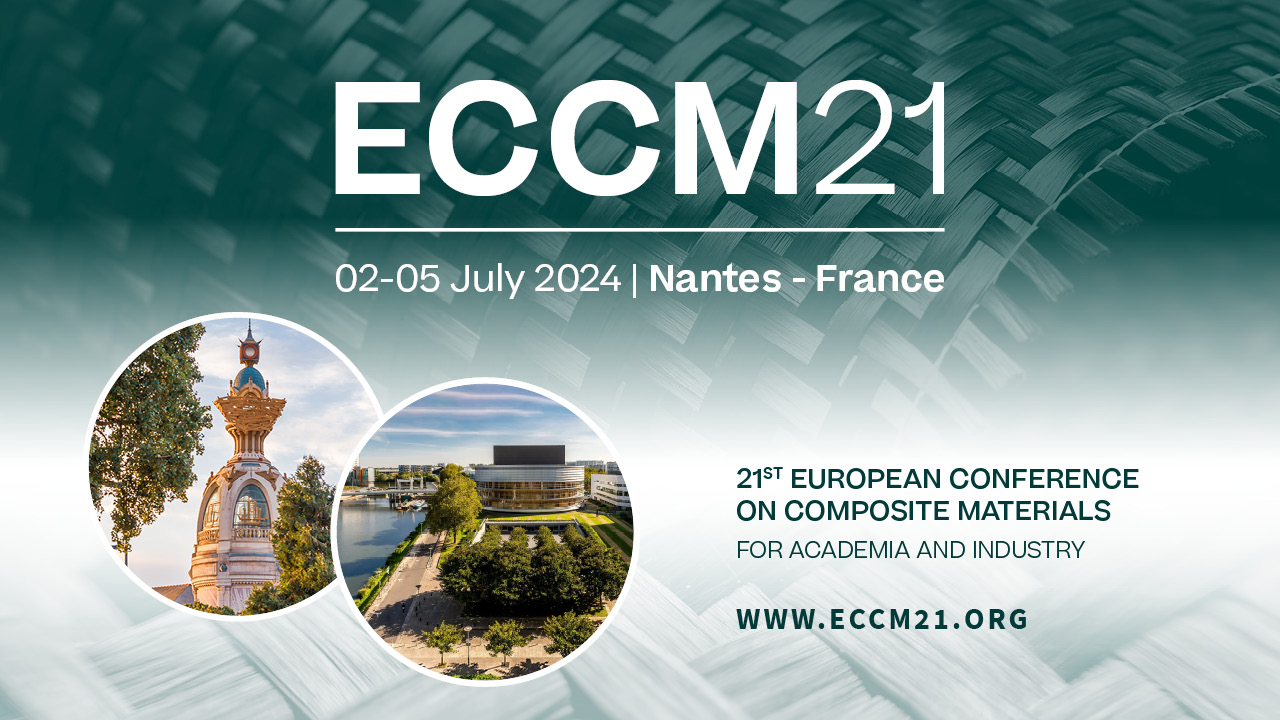Testing an Hydrogen Onboard 70 MPa Composite Pressure Vessel with a new Ionic Liquid Epoxyde matrix
Topic(s) : Special Sessions
Co-authors :
Stephane VILLALONGA (FRANCE), Sebastien LIVI , Jannick DUCHET-RUMEAU , Jean-Francois GERARD , Fréderic DEMARET , Bruno FOURNELAbstract :
In order to limit global warming, it is planned to achieve carbon neutrality by 2050. Land transport is a major contributor to global CO2 emissions (14%). To reduce its impact, vehicles powered by hydrogen are being marketed (Fuel Cell Vehicle FCV or Internal Combustion Engine ICE). However, these vehicles are very expensive and take too long time to be manufactured at mass production level like 70 MPa Composite Pressure Vessels.
For a ligth vehicle, 5kg H2 CPV cost around 4,000 euros and two 62L tanks can be on-board.
The time to manufacture one 62L CPV is around 17 hours including 15 hours for the heating phase during the polymerization of the reservoir matrix.
The new french research project Fastcure 2 aims to significantly reduce this manufacturing time. To achieve this, researchers at INSA Lyon's Institut des Matériaux Polymères worked with material manufacturer Vitech Composites and the CEA's tank research teams at Monts to develop a new resin formulation that reduced the heat released by the resin's chemical polymerization reaction. As a result, chemical reactions were accelerated and curing times reduced by 2.
To validate the new epoxy matrix system, the main validation tests of the on-board 70 MPa H2 tank manufactured with this resin were carried out. The ultimate pressure resistance tests (burst test) and the first thousands of cycles test were successfully carried out during the project. These tests are those of European regulation EC79 and international regulation R134.
Two patents have been filed. A patent for the manufacture of composite tanks by the wet filament winding process (WO2023217934 A1). A patent for the manufacture of composite tanks using the towpreg filament winding process (in progress).
Furthermore, this resin inherently has good fire resistance properties, better than standard epoxy resins, which will need to be estimated. Currently, new research on matrix formulation are conducted to increase recyclability of the carbon-epoxy composite.
For a ligth vehicle, 5kg H2 CPV cost around 4,000 euros and two 62L tanks can be on-board.
The time to manufacture one 62L CPV is around 17 hours including 15 hours for the heating phase during the polymerization of the reservoir matrix.
The new french research project Fastcure 2 aims to significantly reduce this manufacturing time. To achieve this, researchers at INSA Lyon's Institut des Matériaux Polymères worked with material manufacturer Vitech Composites and the CEA's tank research teams at Monts to develop a new resin formulation that reduced the heat released by the resin's chemical polymerization reaction. As a result, chemical reactions were accelerated and curing times reduced by 2.
To validate the new epoxy matrix system, the main validation tests of the on-board 70 MPa H2 tank manufactured with this resin were carried out. The ultimate pressure resistance tests (burst test) and the first thousands of cycles test were successfully carried out during the project. These tests are those of European regulation EC79 and international regulation R134.
Two patents have been filed. A patent for the manufacture of composite tanks by the wet filament winding process (WO2023217934 A1). A patent for the manufacture of composite tanks using the towpreg filament winding process (in progress).
Furthermore, this resin inherently has good fire resistance properties, better than standard epoxy resins, which will need to be estimated. Currently, new research on matrix formulation are conducted to increase recyclability of the carbon-epoxy composite.

